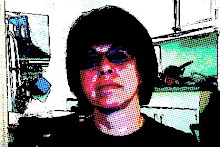Friday, February 18, 2005
Play It Again, Libs
You should know that my favorite book on contemporary history is E.J. Dionne's "Why Americans Hate Politics." This 1992 book contends that the failures of both liberalism and conservatism caused most Americans to feel that elected officials could do nothing to help them and instead they choose a candidate on the basis of whether or not they would lose what they already have, like their guns, abortion rights or tax dollars. Thus, the country was stuck in a "Politics of False Choices" where issues went around in a circle, problems never got solved and nothing moved forward.
The key to breaking out was to connect with "The Politics of the Restive Majority." The Clinton campaign practically used this book as a manual in 1992.
I've just read the avuncular Washington Post columnist's latest, "Stand Up Fight Back," published last June. It could be a sequel to the first book. Only this time, the foe is not a "Politics of False Choices," it's "The Politics of Revenge," and in this round, the Republican Toughs are beating up Democratic Wimps.
As in the first book, Dionne is even-handed in assigning the culpability. The conservatives did their part after 9/11 by painting anyone who disagreed with the Bush Administration as being treasonous. But the liberals did their fair share in setting up the situation by their political correctness, fear of being judgmental, and by spending so much time defending themselves over what they are not that many people no longer know what they are.
Thus, liberals have let the Bushies co-opt their message of freedom and opportunity, when it resembles the conservatives' real mission statement as much as I resemble Rex, The Wonder Horse.
Here's the part that resonates with me:
Hey, I'm into it. If you want me, just whistle.
BTW, my favorite Woody Allen movie is one he didn't write or direct: The Front, where he plays a schnook who fronts for blacklisted TV writers during the McCarthy era. When he's finally caught, after trying to fumfer around and be clever, he tells off the HUAC with a line that has since become my mantra. With Dr. Dean at the helm of the DNC, it looks like it'll become the Democrats' mantra, too.
The key to breaking out was to connect with "The Politics of the Restive Majority." The Clinton campaign practically used this book as a manual in 1992.
I've just read the avuncular Washington Post columnist's latest, "Stand Up Fight Back," published last June. It could be a sequel to the first book. Only this time, the foe is not a "Politics of False Choices," it's "The Politics of Revenge," and in this round, the Republican Toughs are beating up Democratic Wimps.
As in the first book, Dionne is even-handed in assigning the culpability. The conservatives did their part after 9/11 by painting anyone who disagreed with the Bush Administration as being treasonous. But the liberals did their fair share in setting up the situation by their political correctness, fear of being judgmental, and by spending so much time defending themselves over what they are not that many people no longer know what they are.
Thus, liberals have let the Bushies co-opt their message of freedom and opportunity, when it resembles the conservatives' real mission statement as much as I resemble Rex, The Wonder Horse.
Here's the part that resonates with me:
After Bush defeated Dukakis in 1988, the quest for toughness became a high
Democratic priority. In December 1991, I wrote an article arguing--only partly
tongue-in-cheek--that the Democratic Party and liberalism had never been the
same since Humphrey Bogart was lost as the symbol of what it meant to belong to
FDR's party and to support his worldview. Woody Allen, Robert Redford, and Alan
Alda were all very amusing, but Democrats and liberals were dying from an
overdose of irony and detachment. In Bogart, they had a perfect symbol: a tough
guy with a heart, and convictions.
The serious point was that Bogart
symbolized a different kind of liberalism from the sort that was so easily
parodied after the 1960s. It was liberalism that asked something of citizens
(even, as I pointed out back then, hard things like giving up Ingrid Bergman in
Casablanca). Bogart's message was that you didn't do the right thing because you
wanted to be nice or feel good. You did right because it was right. And by
usually winning in the end, Bogart provided that doing the right thing was
rewarded.
Hey, I'm into it. If you want me, just whistle.
BTW, my favorite Woody Allen movie is one he didn't write or direct: The Front, where he plays a schnook who fronts for blacklisted TV writers during the McCarthy era. When he's finally caught, after trying to fumfer around and be clever, he tells off the HUAC with a line that has since become my mantra. With Dr. Dean at the helm of the DNC, it looks like it'll become the Democrats' mantra, too.
Comments:
<< Home
nyc bloggers map
Well, my favorite Woody movie that he didn't direct is "Play it Again, Sam". And my favorite post 9/11 book is Richard Clarke's "Against All Enemies".
Post a Comment
<< Home

